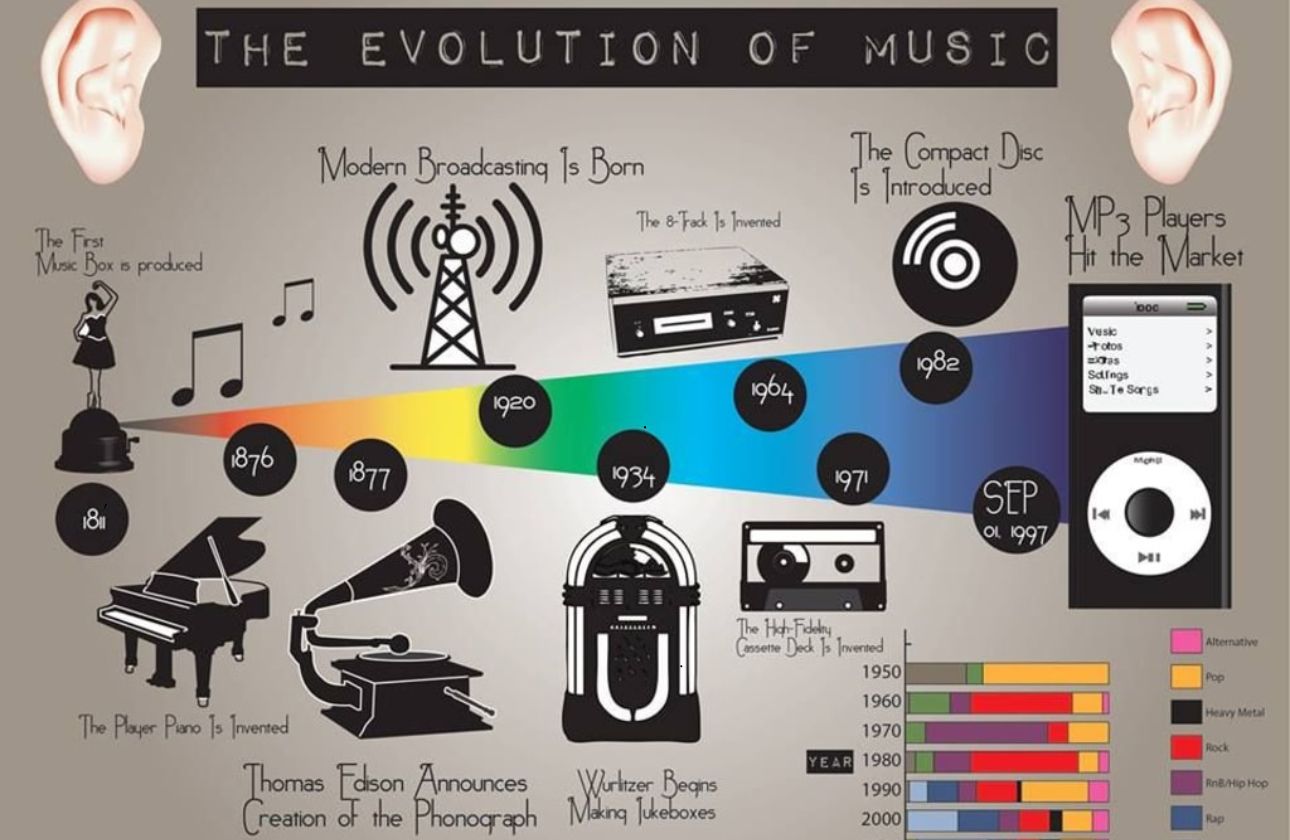Music has been a universal language that transcends boundaries, evolving continuously to reflect societal changes, cultural influences, and technological advancements. From the rhythmic beats of ancient times to the genre-defying sounds of the modern era, music has undergone a fascinating transformation. Let’s explore the rich history and evolution of music genres through the ages.
The Roots: Traditional and Folk Music
In ancient times, music was deeply tied to culture, rituals, and storytelling. Traditional and folk music emerged as expressions of community life, often passed down orally. Instruments like drums, flutes, and stringed devices were crafted from natural materials, creating the foundation for many modern genres.
The Classical Era: Harmony and Complexity
The classical period brought structured and sophisticated compositions. From Gregorian chants to the works of Bach, Mozart, and Beethoven, this era emphasized harmony, orchestration, and emotional depth. Classical music continues to influence genres like film scores and contemporary orchestral pieces.
Jazz and Blues: The Birth of Emotion in Music
Originating in the African-American communities of the early 20th century, jazz and blues transformed music with improvisation and raw emotion. Iconic artists like Louis Armstrong and B.B. King paved the way for genres like rock, R&B, and soul.
Rock 'n' Roll: The Sound of Rebellion
The 1950s saw the explosion of rock 'n' roll, blending blues, country, and rhythm-and-blues. Artists like Elvis Presley and Chuck Berry brought energy and attitude to the stage, marking a cultural shift that resonated with the youth of the time.
The Era of Pop: Mass Appeal
Pop music emerged in the 1960s and 1970s, characterized by catchy melodies and broad appeal. Icons like The Beatles and Michael Jackson defined this era, pushing music into the mainstream and making it a global phenomenon.
The Rise of Electronic and Hip-Hop
The late 20th century brought electronic music and hip-hop into the spotlight. Synthesizers, drum machines, and turntables became staples, with pioneers like Kraftwerk and Run-D.M.C. shaping these genres. Their influence is seen today in EDM, rap, and trap music.
Alternative and Indie Movements
The 1980s and 1990s witnessed the rise of alternative and indie music, offering a counterpoint to mainstream pop. Bands like Nirvana and Radiohead introduced experimental sounds and introspective lyrics, appealing to a new wave of listeners.
The Digital Revolution: Genre Blending
The internet age democratized music creation and distribution, giving rise to genre-blending artists who defy categorization. From Billie Eilish’s moody pop to Post Malone’s fusion of rap and rock, modern music reflects the diversity and creativity of its creators.
Global Influences: The World Comes Together
Today, global music genres like K-pop, reggaeton, and Afrobeat dominate charts, showcasing the interconnectedness of cultures. Artists like BTS, Bad Bunny, and Burna Boy bring their unique styles to international audiences.
The evolution of music genres is a testament to humanity's creativity and adaptability. Each genre carries the essence of its time, shaping and being shaped by the people who create and enjoy it. As music continues to evolve, its ability to connect, inspire, and transform remains timeless.




Comments (0)